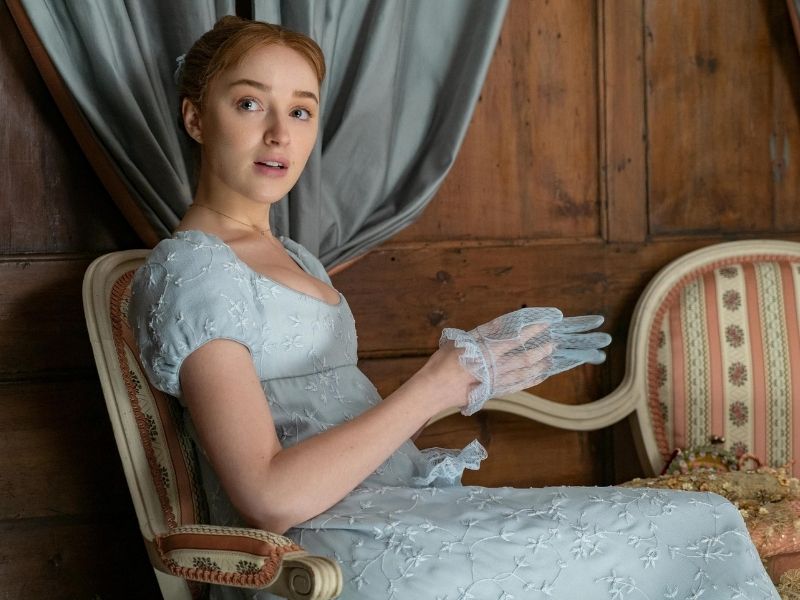Netflix’s 2020 series Bridgerton is based on Julia Quinn’s eponymous novel series that has eight books that focus on the romantic pursuits of each of the eight Bridgerton siblings. The first season was loosely based on the book The Duke & I and it dealt with the eldest Bridgerton daughter, Daphne, played by Phoebe Dynevor and her relationship with the brooding Duke of Hastings, Simon Bassett.
With plenty of steamy sex scenes, lavish balls, flowing gowns and elaborate courting rituals, Chris Van Dusen’s show provided a brilliant insight into the lives of the upper echelons of Regency-era London.
With hordes of exciting characters, the first season mainly focused on Daphne Bridgerton who was introduced in the first-ever episode as “Diamond of the First Water”. While Daphne might come across as fairly simple and sheltered in comparison with her younger sister Eloise, it is important to analyse how Daphne imbibes the tropes of a typical 19th-century romance novel heroine and subsequently subverts them. While Eloise with her spirited and carefree self, embodies the freedom and desire to break free from the societal norms and expectations, Daphne revels in them.
Daphne exists similarly to Meg March from Little Women, someone who is trying to find a suitable suitor to help find a stable household for herself and elevate the reputation of her family and aid her sisters. Eloise is a perfect foil to Daphne, much like Jo March and desperately wants to stay away from this.
Daphne’s somewhat simple and feminine desires do not make her dull. She wants to fall in love, be happily married and be a caring mother, mirroring the kind of affectionate family life bestowed on her and her siblings by her parents. Daphne has lived her life living up to certain expectations and following certain rules and she is well aware of the limitations such regressions have on her.
More often than not, she voices against the blatant injustice meted out to her in comparison to her brothers, especially Anthony who is never held accountable for shirking his responsibilities. Daphne is put in the spot from the very beginning and all her actions in the social sector have repercussions on her family and she has to put up appearances.
When Daphne is married to Simon, she realises her ignorance of the real world. Her elevation to the position of a duchess does not bring a change in her humility, she is still kind and grounded. With Simon, she explores the world of love, marriage, relationships, communication and most importantly, sex. Simon helps her explore new horizons which ignites something important in Daphne. She understands the meaning of pleasure and takes control of her agency by demanding to reach her climax every time they are intimate.
However, the particularly disturbing marital rape scene in the show has unsettled many. Simon, who is not keen on having a child due to his traumatic past with an emotionally abusive father, always pulls out to prevent impregnating her. Daphne decides to take control of the matter and forces him to climax inside her which infuriates him and the viewers who have criticised the character. However, it is important to understand that Daphne has no knowledge of sex, consent and power. Her emotional, physical and sexual discovery is intrinsically linked with her husband’s. While it is no defence of the jarring scene of clear discomfort and non-consent, Daphne’s character cannot be reduced to one single scene.
In the upcoming season, Daphne, now a new mother, will be pushed to the sidelines. However, her presence, as a perfect foil to Eloise, makes her a perfect 19th-century romance heroine who represents the characteristics of the quintessential Regency-era woman. Although Daphne’s wishes and desires are initially related to the greater good of her family, she slowly comes to take control over her body and agency which is a perfect triumph for a character residing in such an oppressive, patriarchal society.
